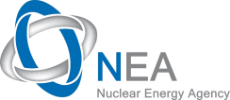Immense Opportunities
Valeriia works at IAEA, and has taken part in every WNU RT School, either as a Fellow, Mentor, or Lecturer. She describes how this experience has inspired and motivated her
Related programme
Since 2018 I am working at the International Atomic Energy Agency as a Radiation Technology Officer. My work is focused on assessment of alternative radiation technologies, specifically uses of electron accelerators to replace high activity sources. I identify and assess potential alternative technologies and develop new approaches to increase Member States’ access to information on machine derived radiation technologies.
I will always remember the warm evening in May 2010 when I arrived at Seoul to participate in the 1st WNU School on Radiation Technology. The following three weeks were intense and unforgettable, full of lectures, reviews, group exercises, technical tours, and social events. From dawn to dusk I was surrounded by mentors, instructors, and about fifty other fellows from all over the world, who all shared my passion about radiation technologies. The environment of this school was different from any training course I had before. While a small fraction of time was indeed dedicated to lectures, most of the schedule was devoted to discussions, interactive work, and other hands-on activities. The last week of the school was almost exclusively focused on the final group project, which we had to present on the last day. It was a truly dynamic and multicultural learning experience. Of course, the school was not only an educational event, but an excellent networking opportunity. All the hours we spent together – learning, working, and having fun – brought us closer together in spite of our different backgrounds.
The school truly inspired me and made me think hard about my career plans. I became more proactive and started looking for additional opportunities. As a result, I found collaborators and together we wrote a rather ambitious proposal which eventually received funding from the US Department of Energy. Shortly after that, I was offered a position as the Head of the Applied Physics Department at Niowave Inc., a private company which focused on development of electron linacs and their applications including accelerator-based radioisotope production.
Through all this, I was reminded of what motivated me in the first place and I realized how much I yearned for the School’s energy and vibe. Thus, when I got an invitation to participate in the 2nd school, I was extremely excited. Now I had a chance to “pay it back” and share all my knowledge and experience with the new fellows! Since then, four other RT Schools have taken place: in South Korea, Qatar, Brazil, and Russia and I am proud to have been a part of every one of them both as a mentor and a lecturer. Moreover, I got involved in another WNU training program, the Summer Institute, which is focused on the nuclear energy field.
In all these programs I gladly share my technical knowledge during the lectures and hands-on activities. However, playing the mentoring role is much more valuable for me. This is especially important for young female professionals, who still do not see many women in nuclear and radiation technology fields. Mentoring relationships have a lot to offer in terms of personal and professional development both to fellows and mentors, and I became good friends and keep in touch with many of my mentees. Still, my favourite part of the school is the final project, so-called NINA, Network for Innovation in Nuclear Application. Half a dozen of various topics, ranging from “Planning a radiation technology start-up” to “Insights on medical overexposure”, are selected for each school and the fellows can choose what suits their professional interests the best. Both fellows and mentors work closely together on their project and prepare the final presentation, which is judged by a committee. This exercise is always intense and challenging, but also extremely rewarding and memorable experience. I hope to continue to be part of the WNU programs and encourage everyone to consider this amazing opportunity.
The WNU training programs are organized regularly by the WNU Coordinating Centre, under the auspices of its four founders: the International Atomic Energy Agency (IAEA), the World Association of Nuclear Operators (WANO), the Nuclear Energy Agency (NEA) of the Organization for Economic Co-operation and Development (OECD), and the World Nuclear Association (WNA). Financial support is available for the participants from the developing countries. It is also possible to win a trip to a program by participating in the WNU Nuclear Olympiad. The opportunities for both learning and networking are immense and are only amplified by experienced staff. I am looking forward to seeing you all at the WNU events!

.png?ext=.png)



